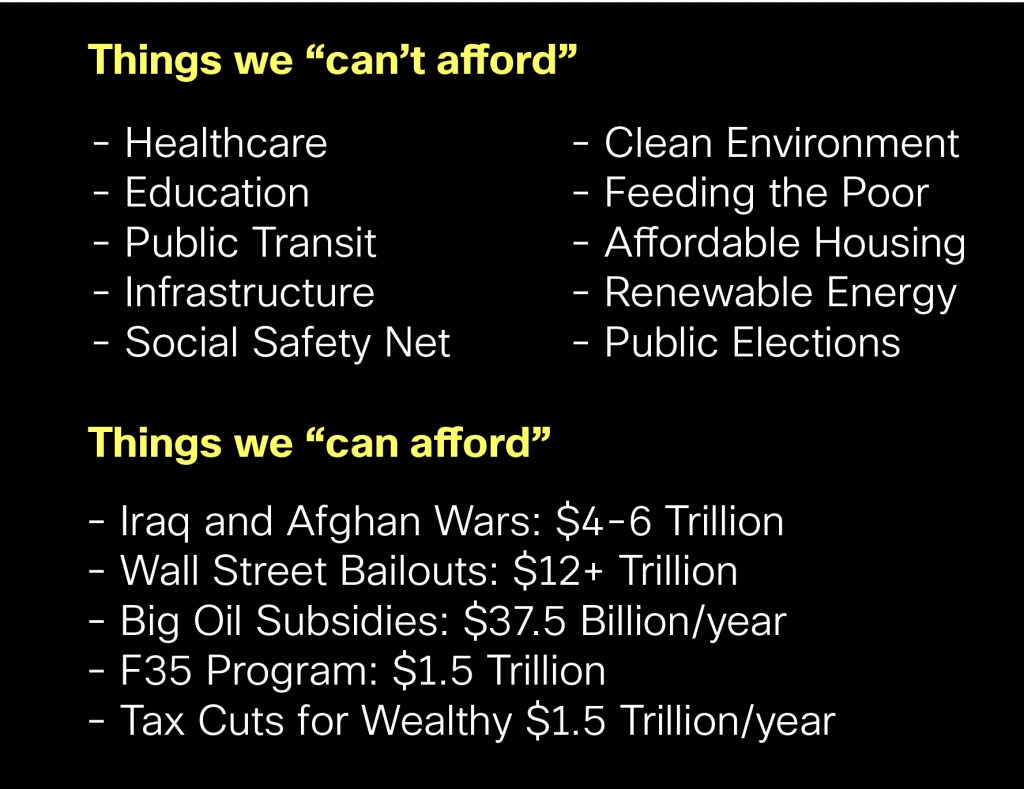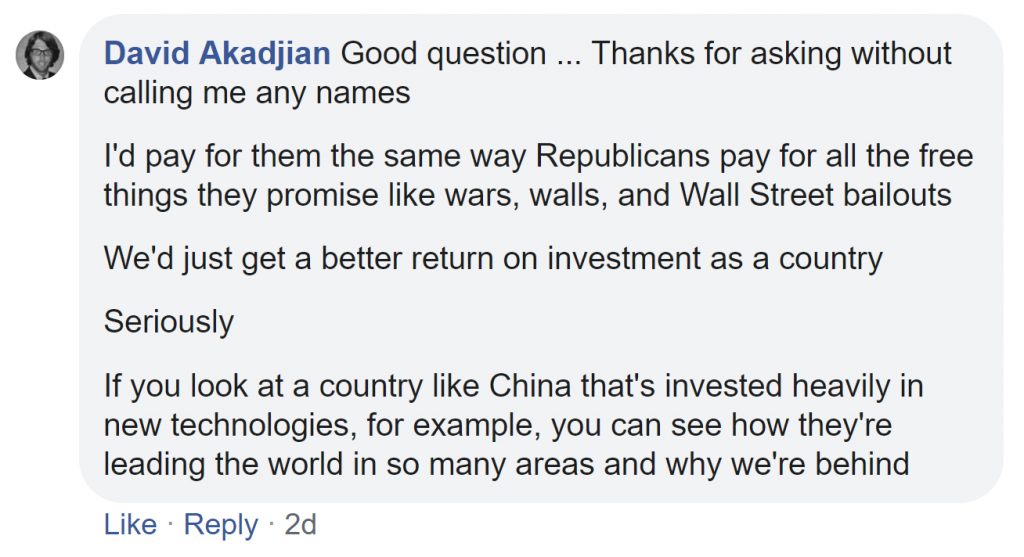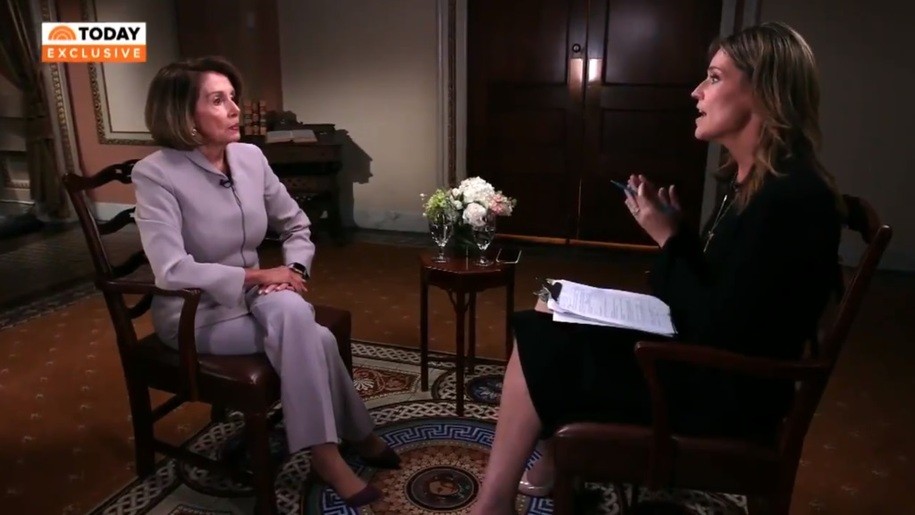The only response anyone should ever give to the question: ‘How do we pay for it?’
One of the ways that corporate media spins against popular programs is by focusing on costs. We saw this on display in the Democratic debates with questions like this one from Savannah Guthrie:
Vice President Biden, thank you. Senator Harris … There’s is a lot of talk in this primary about new government benefits, such as student loan cancellation, free college, health care, and more. Do you think that Democrats have a responsibility to explain how they will pay for every proposal they make along those lines?
When the moderators talked about education, it was framed as “free college.” Renewable energy also got the “how will you pay for it” treatment. Why? Because corporate special interests know that they can raise support for programs by focusing on benefits and lower support for them by focusing on costs and having to pay for it.
This is why there’s only one response anyone should ever give to the question: “How do we pay for it?” This response is:
The same way we pay for all of the “free” stuff Republicans want.
The same way we pay for wars, walls, and Wall Street bailouts.
When Republicans want a wall, cost is never an issue for our politicians. When Republicans want wars, cost also doesn’t seem to be an issue. So we know we can afford these things. We’ve never gone broke because of them.
It’s always okay when certain corporate special interests want things. So there’s no reason from an economic perspective why it shouldn’t be okay for things the 99% support. Things like health care, better public education, and infrastructure programs.

How this works in practice
Corporate special interests have handy outlets that teach them how to use tactics like these to attack “the libs.” All too often we take the bait and think, if I can just answer this question then they’ll agree with me. In a rational world, this would be how things work. It’s not how things work in the entertainment/advertising world we live in though.
In our entertainment world, trying to explain things gets complicated and tends to reinforce the point the opposition is trying to make that these things will be costly and therefore we shouldn’t support them. In the entertainment world, we need a quick snappy answer. This is why saying that we’d pay for them the same way we pay for everything else works so well. If the person you’re speaking with objects, just ask them how we paid for those things. Put them on the defensive.
I’ve played this out in countless conversations and you can’t lose. Here’s a quick example.

My response:

Again, the reason this works is because:
- Republicans spend all kinds of money on things they want
- The answer to the question doesn’t fall into the trap of trying to figure out some actual plan that they would just attack anyways
- If they keep coming at me I’ll just keep asking: “Well, how do Republicans pay for things?”
Here’s how this threw him off balance:

All I have to do is return to answering the original question:

Now you might not convince the person you’re talking to if that person has an agenda. But you have taken cost off the table. You’ve shown that you’re willing to have honest conversations without calling people names. And you may have raised the question: “Are our priorities right?”
Hopefully some of our candidates will start doing this as well with a hostile media. Since the media is putting their thumb on the scale, I think it’s fair to raise these questions with them. How come our country can afford certain things and not others?
David Akadjian is the author of The Little Book of Revolution: A Distributive Strategy for Democracy (ebook now available).











